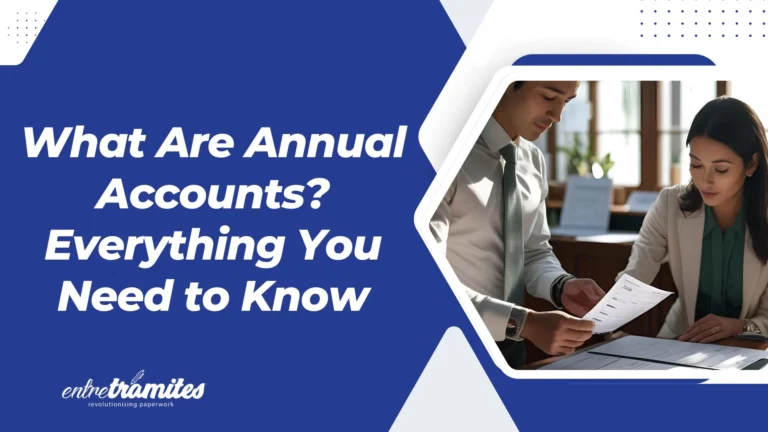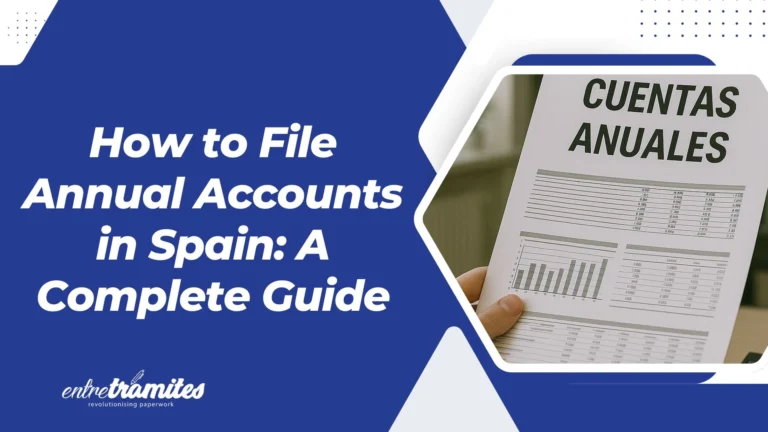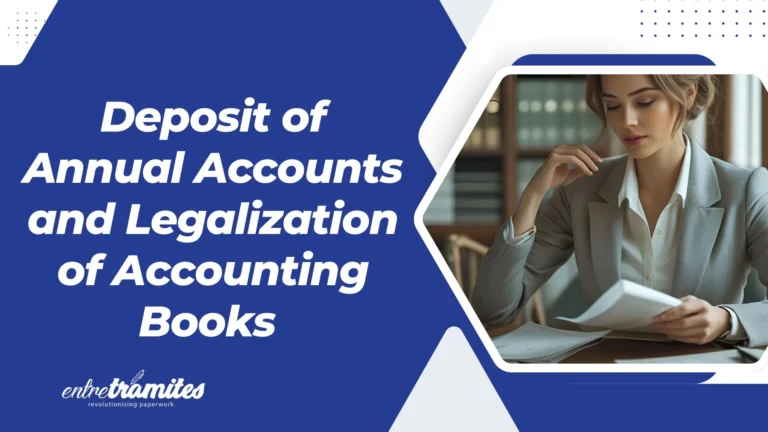Annual accounts are a set of financial documents that reflect a company’s economic situation over the course of a fiscal year. In Spain, preparing and submitting these reports is mandatory for most companies and essential to demonstrate transparency, financial health, and legal compliance.
Whether you’re an entrepreneur, a director, or an investor, understanding what annual accounts are, who must file them, and the key deadlines in 2025 is crucial to avoid penalties and manage your business properly in Spain.
What Are Annual Accounts?
Annual accounts are structured financial statements that provide insight into a company’s assets, liabilities, earnings, and overall financial performance during a fiscal year.
In Spain, annual accounts consist of the following documents:
- Balance sheet: Shows the company’s assets, liabilities, and equity.
- Profit and loss account: Details income, expenses, and net result.
- Statement of changes in equity: Reports variations in shareholders’ equity.
- Cash flow statement: Explains cash movements within the year.
- Annual report (Memoria): Provides additional context and details.
These documents must be drawn up every 12 months (unless there’s an early company dissolution) and signed by the company director(s), who are responsible for their accuracy.
Who Must File Annual Accounts in Spain?
As of 2025, the following entities are required to submit annual accounts:
- Public Limited Companies (S.A.)
- Limited Liability Companies (S.L.)
- General and Limited Partnerships
- Cooperatives
- Branches of foreign companies operating in Spain
- Some foundations and associations, depending on activity and turnover
Sole traders are also obliged to file annual accounts if they exceed two of these thresholds for two consecutive years:
- Total assets over €4 million
- Annual turnover over €8 million
- More than 50 employees on average
Important: These thresholds have been updated in line with the 2024 legal reforms.
Key Deadlines for 2025
Here are the official 2025 deadlines for submitting annual accounts:
- Fiscal year-end: 31 December 2024
- Preparation of accounts: by 31 March 2025
- Legalisation of accounting books: by 30 April 2025
- Approval by shareholders: by 30 June 2025
- Filing with the Mercantile Registry: by 30 July 2025
If the accounts are approved earlier, the filing deadline starts from the approval date.
Types of Annual Accounts Depending on Business Size
Spanish regulations allow different formats of annual accounts based on company size:
Ordinary Annual Accounts
Full version with all five reports, mandatory for large companies.
Abbreviated Annual Accounts
Available for companies that meet at least two of the following for two years:
- Assets ≤ €4 million
- Turnover ≤ €8 million
- ≤ 50 employees
Only the balance sheet, profit and loss account, and abbreviated annual report are required.
SME Annual Accounts
Designed for small businesses that don’t belong to a large group and don’t trade on stock markets.
Microenterprise Annual Accounts
For companies with:
- Assets ≤ €350,000
- Turnover ≤ €700,000
- ≤ 10 employees
A highly simplified format is accepted.
How to Submit Annual Accounts
In Spain, annual accounts must be filed electronically through the Colegio de Registradores platform.
You’ll need to:
- Prepare the documents in digital format (PDF or ZIP as required).
- Sign them using a valid digital certificate.
- Access the relevant Mercantile Registry’s electronic office in Spanish Registro Mercantil.
- Complete the guided online submission process.
Failing to file annual accounts may result in fines from €1,200 to €60,000 and even lead to a company registry block (which prevents registering changes such as new directors).
What If There Are Errors in the Filed Accounts?
If you find errors after submitting your annual accounts, you must:
- Hold a new shareholders’ meeting to approve the revised accounts.
- Submit rectified annual accounts to the Mercantile Registry.
Serious errors—such as falsified data or missing key details—can lead to investigations, penalties, or legal consequences for company directors.
FAQs About Annual Accounts in Spain
What happens if I miss the deadline?
You could face financial penalties and be blocked from updating your company’s registry data.
Do I always need to include the cash flow statement?
Only if your company is not eligible to submit abbreviated annual accounts.
Can I correct a mistake after submitting?
Yes. You must prepare revised documents, approve them again in a general meeting, and re-submit them.
Understanding and correctly managing your annual accounts is not just a legal obligation—it’s a valuable tool for strategic decision-making and protecting your company’s reputation. At Entre Trámites, we help you meet your tax obligations simply and stress-free. We offer specialized services in tax returns, tax advice, and accounting for both freelancers and individuals.
You can also contact us directly through this contact Form for us to call you, or if you prefer, you can schedule a free consultation or write to us on WhatsApp. We’re here to make the process easier for you!




